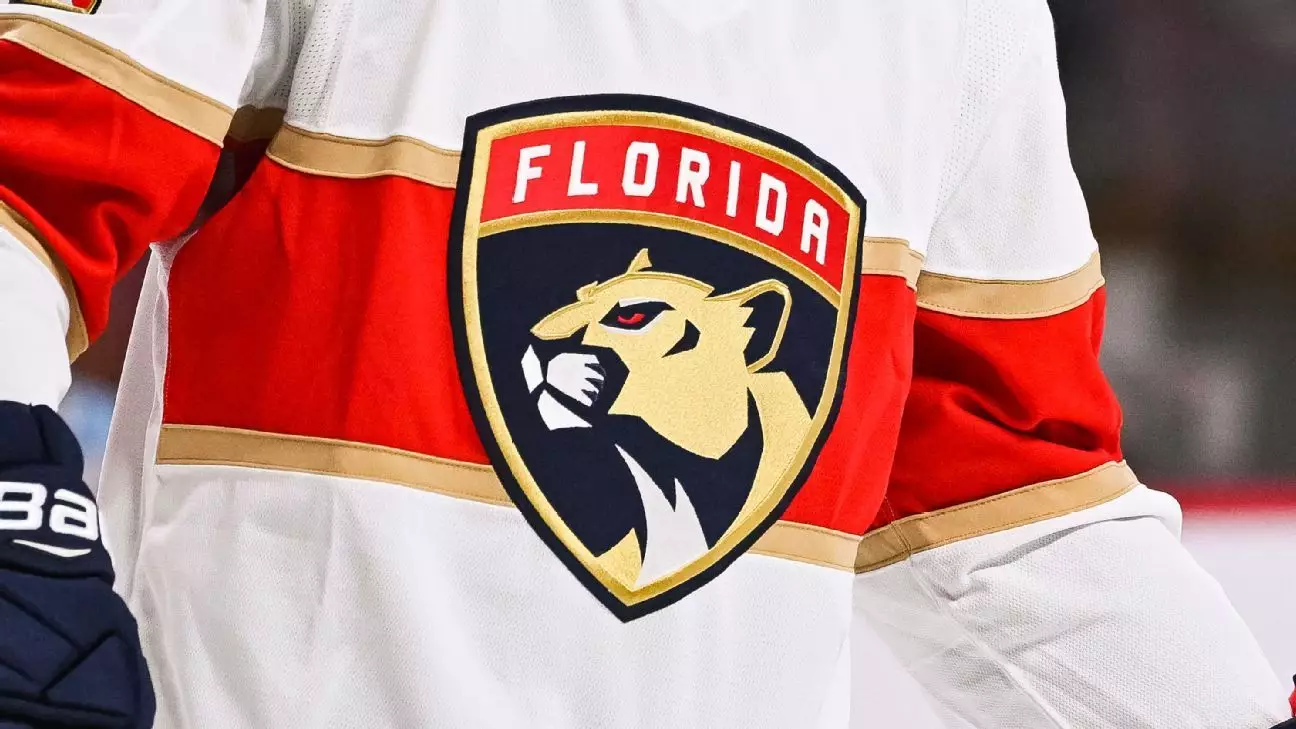In a fast-paced digital age, the lines between expression and transgression often blur, leading to unfortunate consequences. Recent events surrounding Doug Cifu, minority owner of the Florida Panthers, underscore this reality. Cifu’s recent suspension by the NHL, following a series of offensive social media posts, has raised considerable eyebrows and sparked conversations about social media accountability, especially among individuals in prominent positions. This incident isn’t just a temporary blip; it represents a broader failure to navigate the responsibility that comes with influence.
The controversy erupted after Cifu engaged in a heated exchange with a Toronto Maple Leafs fan on X (formerly Twitter). What began as a rivalry-driven banter quickly devolved into a clash of ideologies, particularly around the emotionally charged subject of the Israel-Palestine conflict. Rather than addressing the taunts with the cold steel of wit or heated passion of rivalry, Cifu chose a path that hastily descended into vitriol. He not only dismissed his opponent’s views but escalated the conversation to a deeply inflammatory level, embodying a kind of toxicity that should make organizations cringe.
The Visibility of Power
Cifu, who holds significant positions as vice chairman and alternate governor of Sunrise Sports and Entertainment, is not merely a fan or an anonymous individual hidden behind a keyboard. His words carry weight, and they reflect on a franchise that represents a city, a culture, and a fanbase. It begs the question: Why do individuals in the public eye so often feel emboldened to express divisive opinions on platforms that can catalyze conflict? The sense of anonymity online can make anyone feel invincible, but the consequences—such as what Cifu now faces—are all too real.
His statements reverberated throughout the NHL and the sports world at large, prompting an immediate response from the league. Rather than remaining a mere spectator, the NHL acted decisively in suspending him indefinitely, effectively sending a clear message about intolerance for hate speech. This pivotal moment serves as a reminder that while sports unite, the voices of envy and disrespect can just as easily divide. A championship legacy cannot be built upon the edifice of inflammatory remarks and hostile exchanges.
Corporate Responsibility and Genuine Apologies
After the incident, Cifu attempted to salvage his reputation with an apology that bordered on perfunctory. He claimed his actions did not align with the “standards” of the Florida Panthers organization. However, genuine accountability requires more than just words; it demands action. Apologies delivered under duress often lack authenticity, leading to skepticism from both fans and fellow executives. True regret manifests through a commitment to change, an ardent embrace of tolerance, and a recognition of the damaging impact such words can have on communities and individuals involved.
Cifu’s confrontation was not merely a spat with an opposing fan; it echoed a larger discussion regarding the tone and nature of discourse in the public sphere. Is there space for healthy rivalry without descending into personal attacks laced with discrimination? As a leader, he holds the unique opportunity to foster a culture of respect, particularly during a time when social dynamics are fraught with tension around identity and ideology.
Navigating the Nexus of Sport and Society
Events like Cifu’s suspension thrust the intersection of sports and society into the spotlight, revealing an urgent need for the sports community to actively engage in meaningful discussions surrounding hate speech and social equity. Professional leagues, teams, and players should work together to cultivate not just competitive spirit but a culture founded on mutual respect, understanding, and empathy.
The incident also raises the stakes for athletes and executives alike. In an era where every word can be scrutinized, fostering a mindful approach to communication online becomes imperative. The NHL’s swift actions emphasize that words have power, and with that power comes a responsibility that should never be taken lightly.
In the end, Cifu’s situation serves as a cautionary tale not just for individuals in sports, but for all public figures. As we navigate a world increasingly dominated by social media, let this incident be a turning point that prioritizes respect, understanding, and thoughtful discourse over hostility and division. In the face of a shared passion for sport, let’s aim for connection, not contention.

